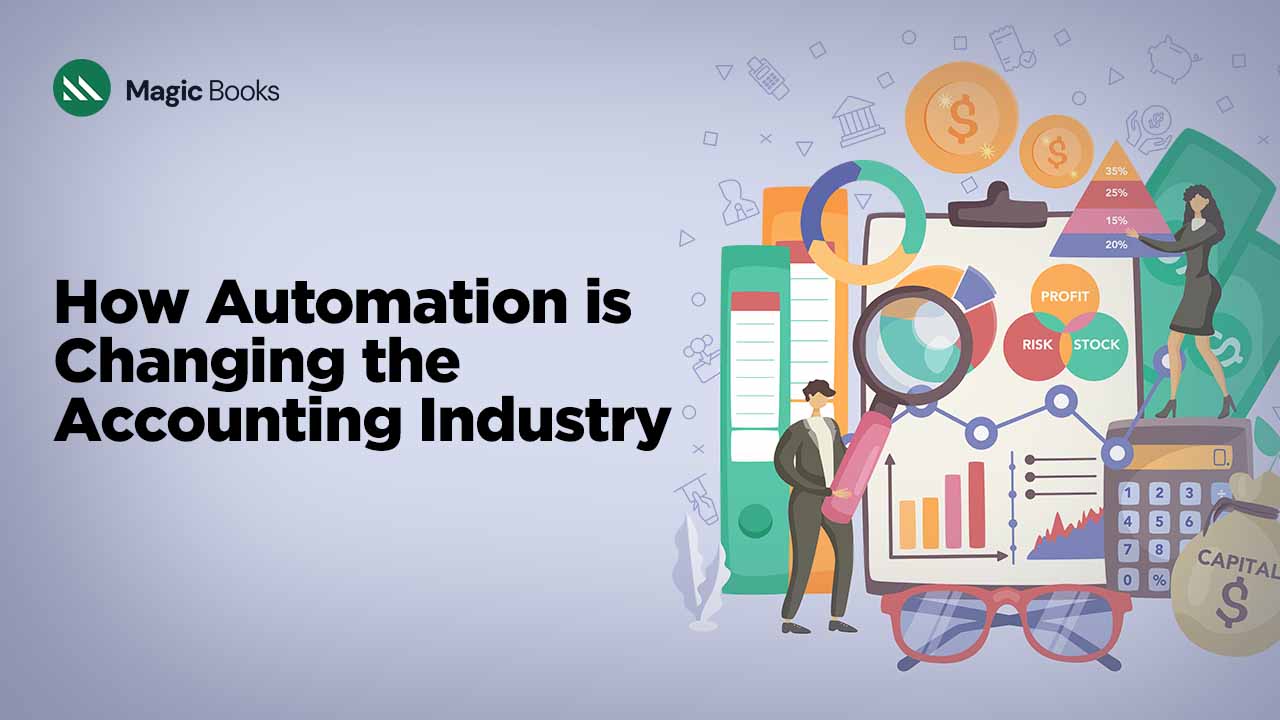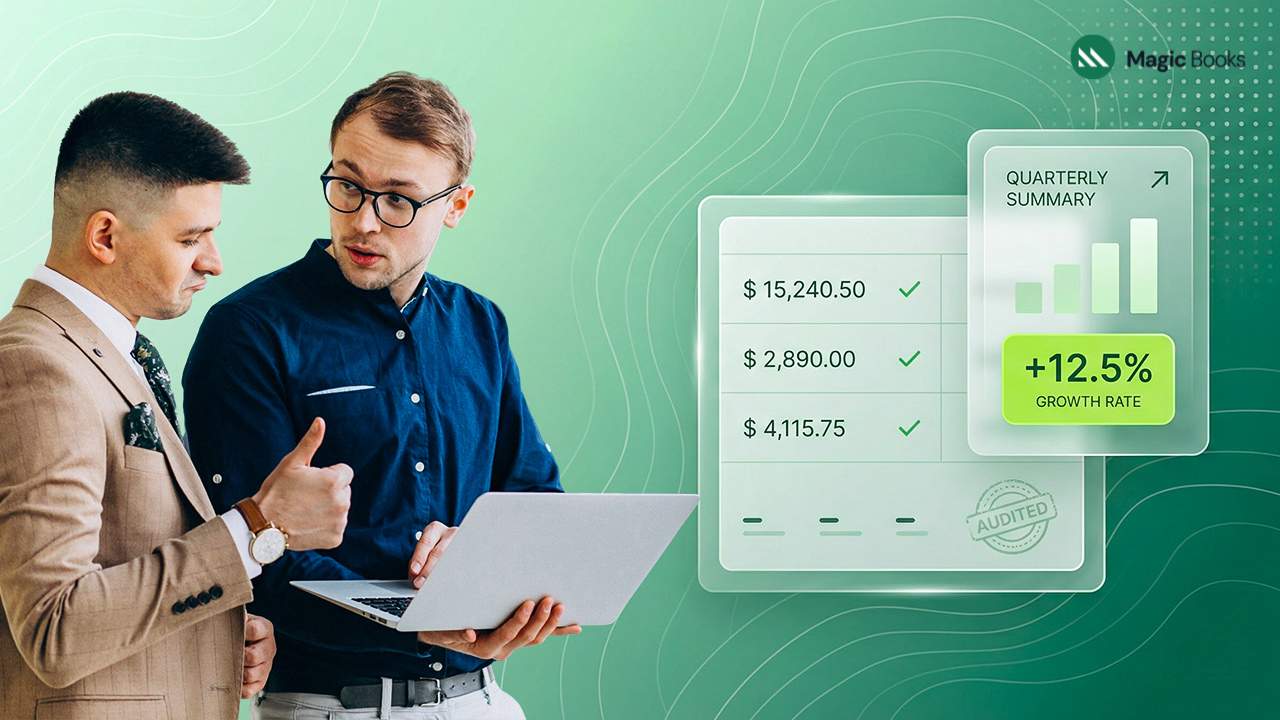Ever since the Industrial Revolution, skill changes have directly correlated with the introduction of new technology in the workplace and overall lifestyle. In this revolution, automation adoption has accelerated these changes compared to even the recent past in every industry, whether its healthcare, marketing and sales, manufacturing and even accounting.
So far, we have applied the term “technology” in a general way, which begs the question: How do automation technologies have the most effect on the accounting industry?
What makes automation so increasingly crucial for the accounting industry?
Let’s find out shall we?
The Rise of Automation in Accounting
According to Gartner, automation technologies can save finance teams up to 25,000 hours of extra weekly work which is caused by human error. This results in $878,000 in cost savings.
This remarkable efficiency boost is one of many reasons why nearly 90% of accounting professionals believe automation increases both profitability and efficiency within their companies.
In simple terms, automation helps accountants do their jobs better and faster by eliminating manual, repetitive tasks, which will allow them to focus on more strategic planning for their businesses. Automation transforms accounting processes, promoting the accountant’s role from a traditional number-cruncher to a strategic advisor.
Automation’s Impact on Accounting Processes
Let’s start with this little titbit: Did you know that, Almost 75% of accounting tasks can be automated with accounting software.
Let that number sink in. In the meantime, here are the impact automation has on accounting processes.
Daily Bookkeeping and Data Entry
When you think of traditional bookkeeping, what comes to your mind? If the answer is manual data entry, then you are definitely not alone.
Its was always an extremely time-consuming task prone to human error and financial nightmare. Since the emergence of automation though, it has taken over all the repetitive, mundane tasks which usually would have taken an entire day to finish.
Risk Management and Cash Flow Projections
Automation has also given accountants the clear mind space to focus on higher value tasks such as risk management and cash flow projections for the overall business. With automation being their new BFF, accountants can now have a broader view and turn their attention completely towards analyzing data for risks, preparing the company for cash flow fluctuations and optimizing business strategies.
Financial Reporting
Automation has changed financial reporting in ways that it was previously unimaginable. Lets us give you a simple relatable example: You are running an online shopping business and for all your reporting work, you rely on Google Sheets and/or Excel. While these archaic tools provide a basic framework, it sorely lack the trail for auditing and real-time accuracy that automated systems offer. Now, If you start implementing automation, your business income statement consolidation process becomes more accurate, efficient and reliable. This eliminates the need for multiple reviews of trial balance iterations.
The Role of AI in Accounting Automation
Ever since ChatGPT has surfaced and found a home in our digital lives, there has been a seismic shift in every single industry. In fact AI is one of the most significant drivers behind the rapid adoption of automation in accounting. Consider AI as the godfather who is making an offer no industry is able to refuse.
Ai-powered tools can perform complex tasks such as:
- Data Integrity Checks
- Financial Analysis
- Technical Accounting Research
These smart and complex systems can analyze large datasets faster than any human could and provide accountants with actionable insights in real-time. This efficiency allows for the automation of more advanced tasks, such as statement preparing and financial forecasting.
The Emergence of Robotic Process Automation (RPA)
Robotic Process Automation (RPA) is a subset of AI that has already found its way into many accounting firms. By 2020, According to a survey of more than 400 accounting and finance companies, 53 percent have already started using RPA, and this number is expected to increase by 72 percent over the next several years.
Now how does RPA work?
RPA works by mimicking human processes and methodologies to perform tasks that require little to no decision-making. This includes copy pasting data or extracting information from emails. What makes RPA particularly valuable is its scalability. As the business grows, RPA can handle the increased workload without requiring significant additional resources. It’s like having an assistant who does the job and doesn’t ask too many questions!
By 2025, it’s estimated that RPA usage will grow by 72%, further enhancing its precision, efficiency, and role in reducing operating costs.
Automation and Changing Skill Sets in Accounting
Is automation going to steal accounting jobs? That question must have lingered in your mind when you were reading it! We would have asked the same question if we were in your position. As automation takes over traditional tasks like data entry and bookkeeping, the skills required for accountants are also changing faster than can we say cash flow. The rise of automation has brought new opportunities for professionals with skills in data analytics, financial strategy, and advisory services. Today’s accountants must understand how to manage automated systems, interpret large datasets and provide actionable insights to clients. Accountants went from data processors to data curators.
Due to this shift, there is a growing demand for accounting professionals who possess a combination of technical knowledge and strategic insights.
Future Trends in Accounting Automation
Automation in accounting is still evolving, and future trends suggest even greater changes are on the horizon. Some of the most promising developments include:
In short, automation is the key to a more efficient, productive, and profitable accounting industry—one where accountants play a more strategic and impactful role than ever before.



